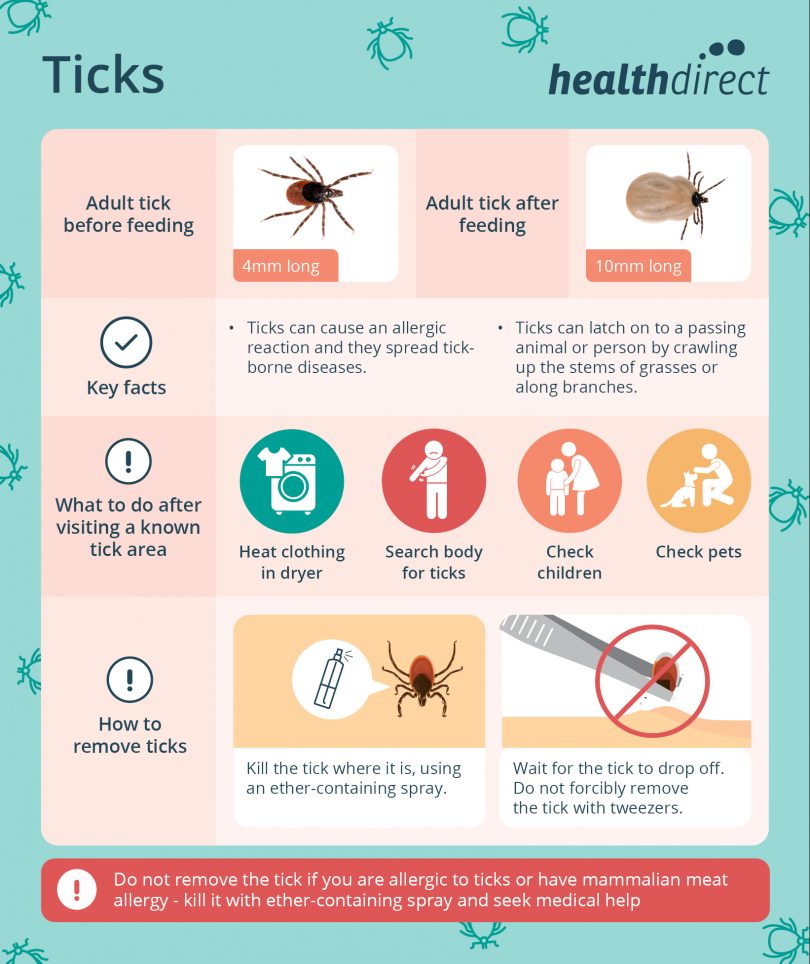
Lucy Ridge has learned more than she’d like to know about ticks. Photo: Lucy Ridge.
I recently took advantage of the (slightly) warmer weather and a free weekend to travel down to the South Coast. Despite a few showers and overcast skies, it was a lovely weekend that mostly involved sampling the culinary delights of the region – ice-cream at the Bodalla dairy, fish and chips from the wharf at Bermagui, and cheese from Tilba – with the occasional swim and coastal walk as the weather allowed.
But when I returned to Canberra, I discovered that an unwanted guest had also been feasting. A tick had attached itself to my back at that really annoying and hard-to-reach point that I always have to ask someone else to scratch.
My immediate instinct was to get-it-off-get-it-off-get-it-off so I rushed next door to my neighbour for help. Despite the fact that they had barely finished breakfast and my request was pretty gross, they kindly agreed to assist me. This is just one of many reasons you should always get to know your neighbours. A brief and panicked Google search led us to believe that the simplest course of action was to grab the thing with tweezers and pull.
When I recounted this to the nurse at my local Walk-In Centre later that day, she responded with: “I really wish you hadn’t done that.” That’s a sentence you definitely do not want to hear from a health professional.
While get-it-off-get-it-off-get-it-off is an understandable reaction to the discovery of a parasitic tick on your person, current health advice is to spray the tick in situ with a spray containing ether. This spray freezes and kills the tick, which will then drop off. These sprays are readily available from pharmacies, and using one is probably far more pleasant for your helpful neighbour than a messy tweezer extraction.

How to identify ticks and remove them safely. Image: Health Direct.
Talking to other people about my experience yielded all kinds of wacky home remedies like lighting matches, dabbing toothpaste, or twisting with tweezers. None of which, I hasten to add, are recommended. In fact, many of these will make things worse.
Squeezing the abdomen of the tick with tweezers can force saliva from the tick into your bloodstream, potentially causing a serious illness or allergic reaction. There is even evidence that tick saliva can cause a red meat allergy in some rare cases. Trying to remove a tick while it is still alive will also cause them to hold on tighter, which in my case meant that a part of the tick was left behind when the abdomen was pulled out. This piece of tick-detritus could cause a nasty infection, so I sought medical advice.
And I wasn’t alone in making a mistake: my nurse had seen four other tick-related patients the previous day who had all tried (and failed) to remove various ticks themselves. She mused that they will need to order extra supplies if numbers kept up like this.
It turns out that adult ticks are most active in Spring, and recent wet conditions have allowed populations to flourish in coastal areas. As lots of Canberrans head to the beach, this has resulted in greater numbers of ticked-off people (I make no apology for the pun)!
And it’s not just a problem for people: dog owners should be especially careful as a bite from a paralysis tick can cause a toxic reaction in dogs that can be fatal. South Coast vets have already reported a larger number of tick bites in pets this season.
The good news is that you can do things to prevent a tick bite. According to the Australian Government website Health Direct, you should avoid walking through long grass, especially after rain, and keep your skin covered when walking in tick habitat areas. Insect repellents containing DEET or picaridin will also help, and you should search your body carefully for ticks after spending time outdoors.
I will definitely be adding some ether spray to my first aid kit and spending a little more time checking my skin after walking along the coast.
But it won’t stop me heading back to the beach for more fish and chips.












